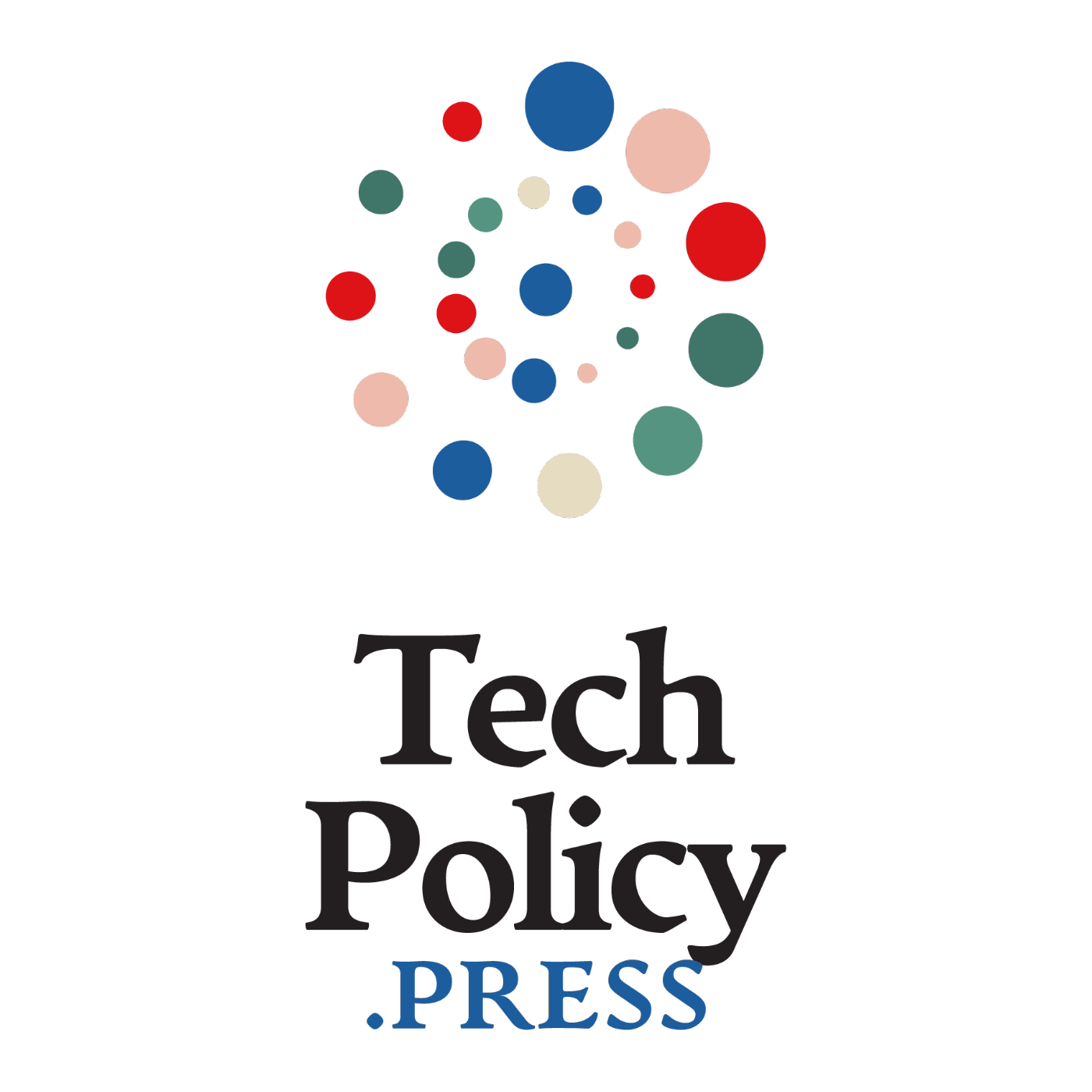

The Tech Policy Press Podcast
Tech Policy Press
Tech Policy Press is a nonprofit media and community venture intended to provoke new ideas, debate and discussion at the intersection of technology and democracy.
You can find us at https://techpolicy.press/, where you can join the newsletter.
You can find us at https://techpolicy.press/, where you can join the newsletter.
Episodes
Mentioned books

10 snips
Jun 2, 2024 • 42min
The Role of Shareholder Activism in Tech Accountability
Guests from Open MIC and Arjuna Capital discuss the role of shareholder activism in tech accountability. They delve into the importance of transparency, accountability, federal privacy laws, AI risks, and engaging with tech companies. The podcast highlights successful engagements with Meta and Google, emphasizing collaborative efforts for responsible innovation.

14 snips
May 26, 2024 • 38min
Shadow Report on AI Addresses What the US Senate Missed
Shadow report critiques US Senate AI policy roadmap, emphasizing corporate influence, legislative urgency, transparency in AI practices, accountability in decision-making, and impact of private vendors on government information access. Authors discuss diverse perspectives and recommendations from civil society and academia.

May 26, 2024 • 41min
A Perspective on Meta's Moderation of Palestinian Voices
Marwa Fatafta, Policy and advocacy director for Access Now, discusses challenges with Meta's moderation of Palestinian voices. Topics include biases in content moderation, difficulties facing journalists in Gaza, lack of civil society consultation, and the need for policy changes and advocacy efforts.

10 snips
May 19, 2024 • 36min
AI: Past, Present, and Future with Chris Stokel-Walker
Tech journalist Chris Stokel-Walker discusses AI, from its history to future implications. Topics include the rise of transformer models, AI disinformation, copyright dilemmas in AI training, and navigating tech regulation. Insightful and engaging conversation on the impact of AI on society.

5 snips
May 19, 2024 • 35min
Prioritizing Civil Rights in US AI Policy: Claudia Ruiz and Alejandra Montoya-Boyer
Claudia Ruiz and Alejandra Montoya-Boyer, civil rights advocates in US AI policy, discuss the Senate report favoring industry over public interests. They emphasize the need to prioritize civil rights, address biases in AI implementation, and collaborate with industry leaders for inclusive innovation. The podcast explores the necessity of regulations for advanced AI models and the urgent need for specialized oversight in the evolving AI landscape.

30 snips
May 12, 2024 • 42min
What We're Talking About When We Talk About Rural AI
Dr. Jasmine McNealy discusses the importance of developing policies for 'Rural AI' with a focus on connectivity, algorithm bias, and managing natural resources. Guests highlight the need for inclusive policies, broadband connectivity, data ownership, water resource management, and global perspectives on rural AI challenges.

May 11, 2024 • 46min
A Hippocratic Oath for AI? A Conversation with Chinmayi Sharma
Chinmayi Sharma, an Associate Professor at Fordham Law School, discusses the need for a professional ethics framework for AI developers similar to the Hippocratic oath in medicine. Topics include legal frameworks, ethical dilemmas in AI decision-making, professionalizing AI engineers, national security implications of the AGI race, and risks of professionalization in various fields.

May 5, 2024 • 44min
Don't Hype Disinfo, Say Disinfo Experts
Disinformation experts discuss the term's overuse in political discourse, cautioning against hyping its effects. They delve into the risks of exaggerating disinformation, which aids propagandists and diminishes trust. Topics include scaling back alarmist narratives on foreign disinformation, navigating exaggerated influence operation claims, and the impact of social media disinformation on public trust. The conversation explores historical instances of hacking, digital authoritarianism, foreign aid to Ukraine, and nuances of reporting on potentially foreign-originated information.

9 snips
May 4, 2024 • 53min
Resisting AI and the Consolidation of Power
The podcast discusses the constraints on discourse in mainstream computer science publications related to AI and power. They delve into AI safety culture, the potential of artificial general intelligence for utopia, and debunking robot rights. Authors highlight the importance of critiquing power dynamics and ideologies in AI research, advocating for a diverse approach in shaping the future of AI governance and policy-making.

Apr 28, 2024 • 50min
What's Next for TikTok, and US Tech Policy
Law professor, Anupam Chander, discusses the implications of US policy changes on TikTok, potential legal battles, global tech regulations, internet governance, national security risks, foreign investments, data privacy issues, and the challenges faced by the US government in defending its actions.


